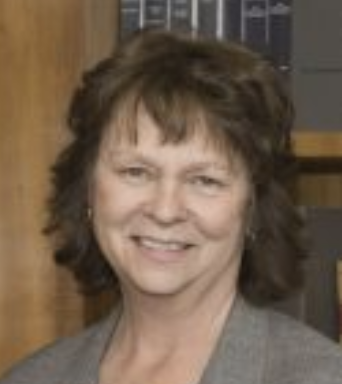Timber advocates ghostwrite commissioners’ complaint about River Democracy Act
Published 9:00 am Tuesday, November 16, 2021

- Beverage
LA GRANDE — U.S. Sen. Ron Wyden in August got a letter critical of his plan to preserve more Oregon streams from 14 county commissioners in Eastern Oregon.
They represented the letter as their view — but gave no indication the piece had been produced by the timber advocacy group American Forest Resource Council.
Oregon Wild, an environmental organization based in Portland, traced the emergence of the letter through a public records request to the Union County Board of Commissioners and shared its findings with the Capital Chronicle.
The legislation called the River Democracy Act, proposed by Wyden and U.S. Sen. Jeff Merkley, would add 4,700 miles of Oregon streams and rivers to the National Wild and Scenic Rivers system.
It would also, according to the American Forest Resource Council, take about 3 million acres of federal land out of use for cattle and logging industries.
Some Eastern Oregon interests have pushed back on the proposal, fearing that it would impair ranching and forestry and pile on new federal regulations.
Among the records the group obtained was an email in August from Heath Heikkila, a government affairs officer at American Forest Resource Council and registered lobbyist, to Union County Commissioner Paul Anderes. Anderes doesn’t work in the timber industry but comes from a timber family in Roseburg, according to the Union County Commission site. He has been a commissioner in Union County for about three years.
Heikkila wrote that he was attaching the draft of a letter “that could be sent to Sen. Wyden in advance of next week’s town hall meeting on the legislation. I thought it might make sense to have it come from a group of commissioners.”
Heikkila didn’t respond to emails or voice messages seeking comment, and Anderes, the county commissioner, didn’t respond to emails or voice messages about the matter.
The American Forest Resource Council is a trade organization that lobbies for the timber industry out of Portland and in Washington, D.C. The group has a political action committee that contributes to both Republican and Democratic candidates at the state and federal level, according to the nonprofit Open Secrets. Anderes has not received any contributions from the group, according to Open Secrets.
The draft letter that Heikkila sent to Anderes on Aug. 24 was addressed to Wyden and posed questions ahead of a town hall he hosted later that month.
Within three days, Anderes and 13 other Eastern Oregon commissioners signed the letter and sent it via email, verbatim, to Wyden’s office. The letter expressed concern that the River Democracy Act would create too many regulations for agencies to enforce and leave millions of fire-prone acres of forest untouchable.
“As you know, federal land management agencies must navigate an unending and often conflicting maze of federal laws, regulations, and litigation as they seek to implement land management activities and treat millions of at-risk acres across Oregon,” the letter said. “Unfortunately, the Forest Service and Bureau of Land Management are falling far behind the pace needed to get ahead of the growing crisis and we are deeply concerned about any legislation that would compound the challenges they face.”
Anderes had earlier adopted language on the issue produced by the American Forest Resource Council. On Aug. 4, he and Union County Commissioners Matthew Scarfo and Donna Beverage issued a resolution opposing the River Democracy Act. Emails obtained by Oregon Wild showed the resolution was drafted by Nick Smith, public affairs director for the American Forest Resource Council, and emailed to Anderes about a month before the commission passed its resolution.
Smith told the Capital Chronicle that the American Forest Resource Council urges public officials to take up their causes, just like Oregon Wild.
“We have serious concerns about this bill and its potential to worsen wildfires in Oregon,” he said. “We encourage elected officials and organizations to take positions. If they’re using that information, and it sounds like they did, then they have serious concerns about the bill and want to be heard.”
Arran Roberts, communications manager at Oregon Wild, said, “We haven’t had someone stick anything we’ve said on their letterhead and call it their own.”
He agreed that advocacy groups press their positions with public officials.
“We have a role to say you should do this, ask these questions. There’s a difference between that and writing a whole resolution and having it copied and pasted,” he said.
Erik Fernandez is wilderness program manager at Oregon Wild. He sought the public records from Union County after noticing similarities between press releases from the American Forest Resource Council and statements from several Eastern Oregon county commissioners.
“The statements, the talking points, they were clearly all reading from the same script,” he said.
“These Eastern Oregon county commissioners are criticizing this bill for being written by Portland environmentalists. But here you have timber industry lobbyists based out of D.C. and Portland talking for them,” he said.
Smith said that there is a deep frustration in Northeastern Oregon and elsewhere over the bill.
“There are people in rural Oregon that have had their input and concerns ignored about the bill,” he said. “We have members who operate in rural areas, who employ people in rural areas, and are in communities where members would be deeply affected by the implications of this bill.”
Adding more river miles to the Wild and Scenic Rivers system would impose higher standards for water quality and more protection for cultural and recreational values. It could also mean more land off limits to logging and logging activities. The American Forest Resource Council said the proposal could restrict forest thinning and management needed to protect the state from wildfires.




